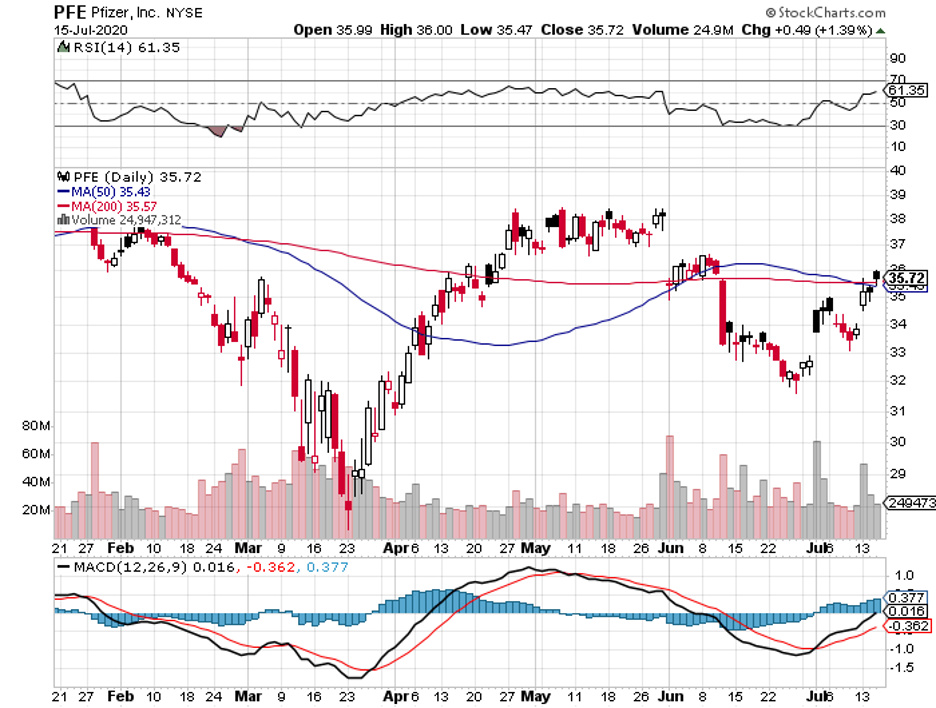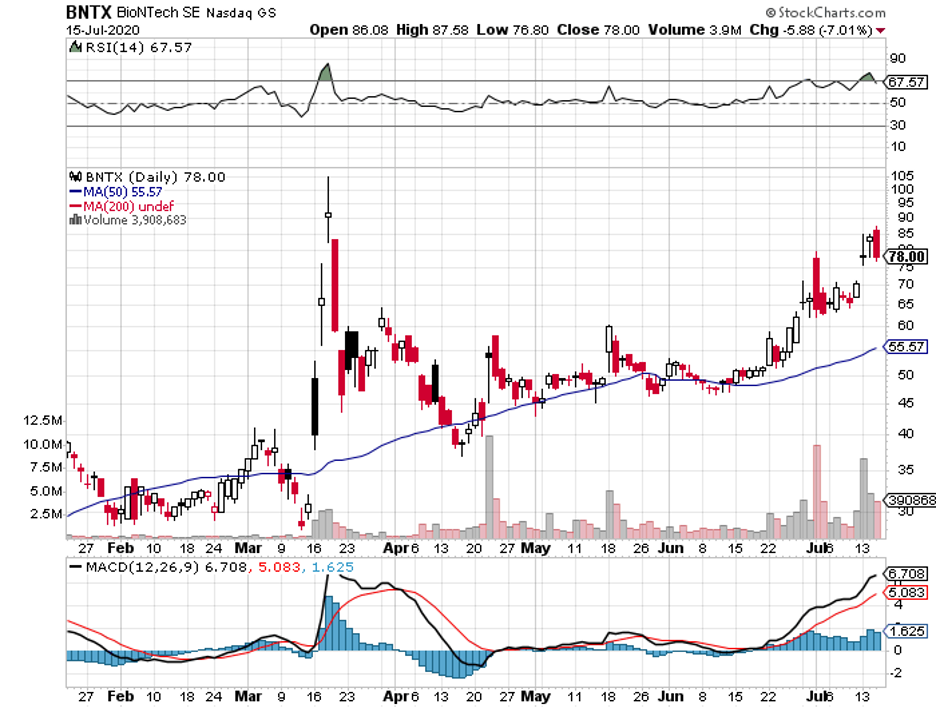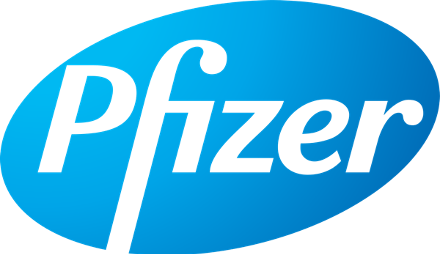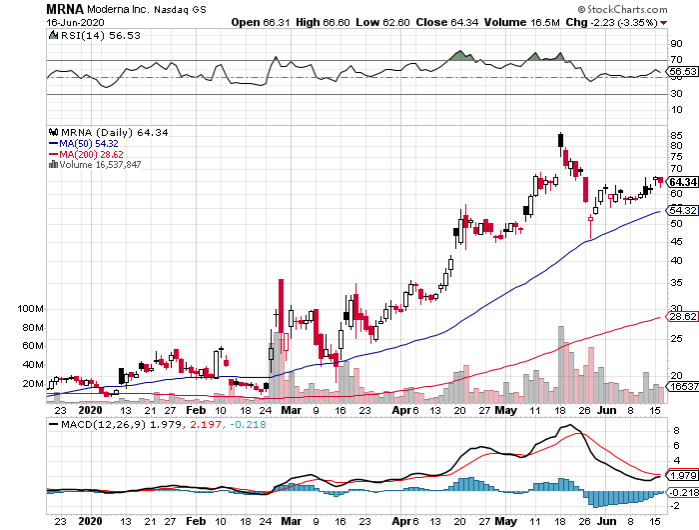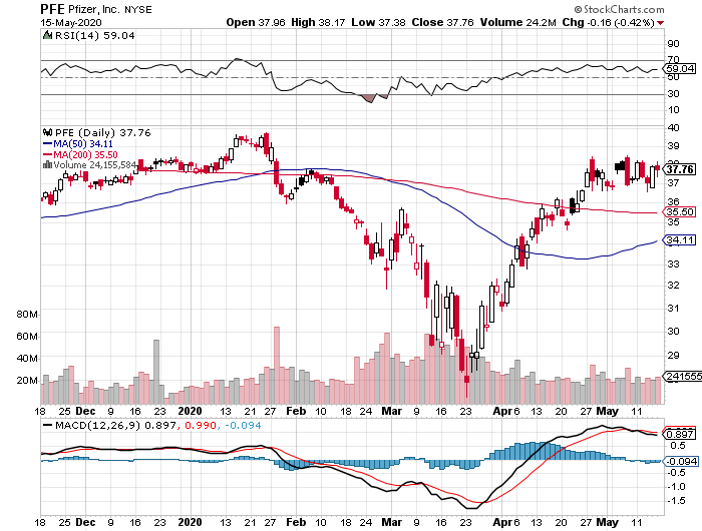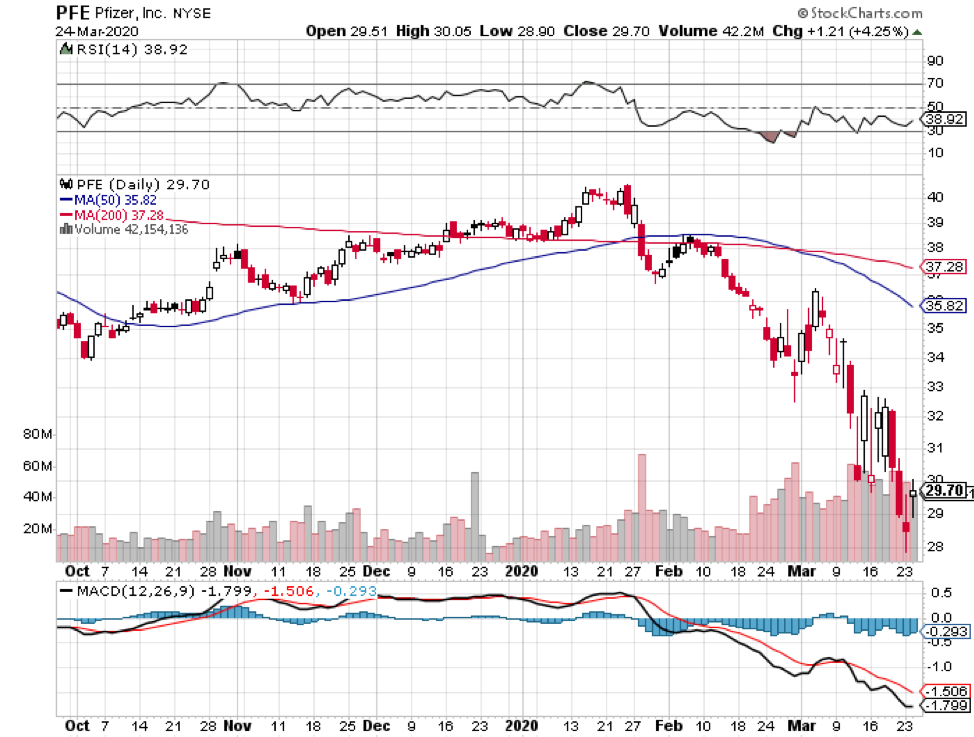Pfizer (PFE) and BioNTech (BNTX) have stealthily positioned themselves as the new leaders in the COVID-19 vaccine race.
They recently received an FDA fast-track label for BNT162, pushing the timeline for their vaccine candidate to start late-stage trials for 30,000 patients this July as well — a timeline similar to Moderna’s plans.
Like Moderna’s vaccine candidate, Pfizer and BioNTech also use mRNA technology.
Basically, this system takes advantage of our own biological building block to trigger our body to create proteins. These can then help us protect ourselves from pathogens such as the coronavirus.
The announcement of the FDA fast-track pushed Pfizer stock to immediately jump by 5%, an impressive leap for a company with almost $200 billion in market capitalization. Meanwhile, BioNTech stock rose by 15%.
While the vaccine is anticipated to be launched by December 2020, Pfizer executives appear to be more bullish on the timeline.
In fact, the company expects a release date for the late-stage trial data to be available by September with a potential FDA approval by October.
If Pfizer’s vaccine candidate does manage to pass muster, then the two companies are expected to manufacture almost 100 million doses by the end of the year, with the number reaching 1.2 billion by December 2021.
Other than BNT162, Pfizer and BioNTech also received FDA fast track designations for two of the most advanced candidates in their pipeline, BNT162b1 and BNT162b2.
Having all these vaccine candidates under FDA fast track reviews is a welcome reprieve in this ongoing pandemic.
To say that we need an effective vaccine now more than ever is an understatement. This health crisis has been pushing not only the US but also the entire world on the brink of a financial shutdown.
So far, we have recorded over 13 million cases globally—3.5 million of those come from the US alone. With the increasing number of cases, more and more hospitals are crying out for help because they’re getting overburdened.
Apart from its coronavirus program, Pfizer offers a plethora of opportunities for investors.
In 2019, the company raked in $51.8 billion in revenue.
For this year, Pfizer has been zeroing in on improving its pipeline with eight potential blockbuster products anticipated to generate an additional $1 billion or more in annual sales.
Outside its own pipeline, Pfizer is also expected to reap the rewards from its spinoff Upjohn and the merger of this particular unit with Mylan (MYL).
The new company, called Viatris, will inherit some previous blockbusters from Pfizer.
This move is aimed to pave the way for Pfizer to focus on its rising stars like blood clot treatment Eliquis and heart failure medication Vyndaqel. Overall, these changes are projected to provide a bigger impact on Pfizer’s growth.
Meanwhile, BioNTech is also an interesting company to check out.
As with any typical biotechnology stock with no product out in the market yet, BioNTech remains speculative despite its $17.83 billion market capitalization.
However, its involvement with Pfizer in the development of a COVID-19 vaccine will definitely light a fire under this German company.
With that in mind, BioNTech shouldn’t be considered a one-trick pony.
Prior to its work with Pfizer, the company has been focused on creating individualized cancer treatments. So far, it has 10 cancer drug candidates in the 11 clinical trials underway.
Aside from Pfizer, BioNTech has also been working on other biotechnology and healthcare bigwigs like Sanofi (SNY) and Roche (RHHBY).
The race to complete the Phase 3 of the late-stage clinical trials for the COVID-19 vaccine has been tight.
Initially, it was only Moderna that held the top spot—and the stock definitely flourished because of it. Since the pandemic broke out, this biotechnology company’s stock skyrocketed to a jaw-dropping 202% year to date.
At the time, the close second was another small biotechnology with a market capitalization of $6.44 billion, Novavax (NVAX). The company’s stock also soared by a whopping 252.1% thanks to its COVID-19 efforts.
Now, Pfizer and BioNTech are well on their way to dethroning Moderna—if they haven’t done so already.
With a market capitalization of $198.42 billion compared to Moderna’s $31.9 billion, Pfizer has the upper hand in terms of resources, more extensive access to manufacturing partners, and of course, distribution.

